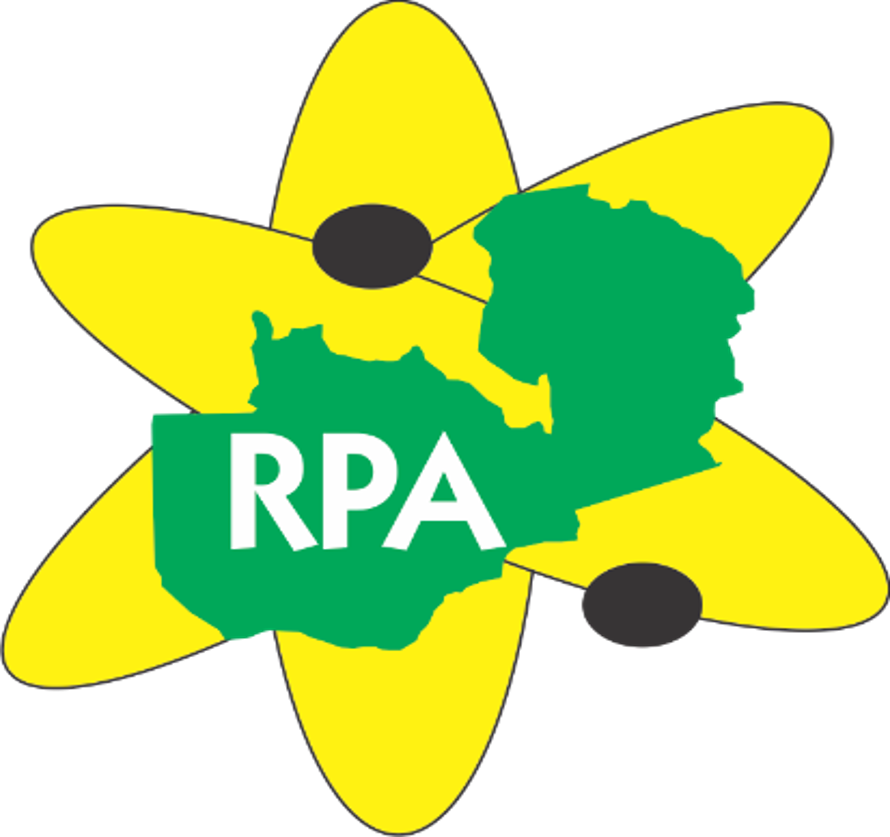Zambia’s Radiation Protection Authority (RPA) is the country’s regulatory body with a mandate to protect the public, workers and the environment from hazards arising from the use of devices or materials capable of producing ionising radiation. We sat down with Mr Mapanza Welly Sikananu, Senior Nuclear and Radiation Safety Officer, to learn how the organisation is engaging with WINS and utilising WINS resources.
How does RPA utilise WINS membership and resources to engage staff in nuclear security?
Integrated Training Framework: The RPA’s Inland Offices have made WINS resources central to their training programmes. This includes highly recommending the WINS Nuclear Security Certification Programme for all interns and new staff, regardless of their diverse academic backgrounds spanning nuclear engineering, radiology, environmental health and geology. This ensures a foundational understanding of nuclear security principles across the team.
Complementary Learning Approaches: The RPA utilises a blended learning strategy, combining WINS’ comprehensive online modules with relevant courses from the IAEA, such as those under the EPR-Nuclear Security framework to better understand and contextualise the specific security risks within Zambia’s mining, health, transport, construction and other relevant sectors.
Practical Application through Workshops: The Inland Offices serve as dedicated training hub where WINS case studies and material, such as those focusing on Radiological Source Security in Healthcare, are actively used to facilitate simulated real-world scenarios. These exercises are crucial for preparing staff for tasks like border detection of illicit materials and effective incident response.
Recognising the unique context of nuclear security in Zambia, RPA, through WINS modules and publications, has localised training content. This involves adapting existing modules, such as those on Insider Threat Mitigation, to specifically address the challenges encountered within Zambia’s prominent mining and transport sector, particularly concerning the handling of nuclear gauges, MORC and other radioactive materials.
“WINS has fundamentally transformed RPA’s approach to nuclear security, particularly at our Inland Offices, by strategically aligning WINS’ globally recognised standards with the specific realities of Zambia.”
What have you learned through this experience?
Bridging Disciplinary Divides: A key learning has been the effectiveness of WINS materials in making complex nuclear security concepts accessible to professionals from various non-nuclear specific backgrounds. For instance, the RPA hires interns/personnel with different educational background such as public health, environmental health, mathematics, biology, physics, chemistry among others: Through the recommended WINS certification, they now readily grasp the principles of a graded approach when categorising radioactive sources thanks to the clear and practical explanations provided by WINS.
Addressing Practical Implementation Gaps: RPA has gained valuable insights into the long-term aspects of nuclear security. WINS’ emphasis on sustainability, particularly through materials like Maintaining Nuclear Security Culture, has highlighted the importance of establishing recurrent training cycles within RPA through symposiums and mentorship, ensuring that skills and knowledge are continuously updated rather than relying on one-time certifications.
What has been the impact on your organisation?
Measurable Improvements in Competence: Since 2023, RPA has achieved a more than 50% WINS certification rate among its interns. This has translated into demonstrably improved field inspection capabilities, with staff effectively utilising resources like WINS’ checklists for physical protection systems during inspections at key facilities such as the Kalulushi Storage Facility.
Informing Policy and Regulations: WINS’ International Best Practices Guides have played a significant role in the development and updating of RPA’s regulatory framework. These guides have directly informed updates to RPA’s draft Nuclear Security Regulations, ensuring the integration of crucial international obligations such as those outlined by ICSANT.
Emerging Regional Leadership: The enhanced expertise of RPA’s trainees, grounded in WINS certifications and best practices, has positioned the Inland Offices as a centres of progressive professional competence.
What WINS materials do you find most useful or recommend?
Our key recommended resources are the International Best Practice Guide series and the WINS Academy training programmes.
What advice do you have for other organisations looking to utilise WINS offerings?
Practical Recommendations:
- Establish a common foundation with core certifications: It’s highly recommended to mandate foundational certifications like Nuclear Security Foundation Module for all staff members to establish a common understanding and language around nuclear security principles within the organisation.
- Contextualise training content: Organisations should actively work to localise WINS’ training scenarios to make them more relevant to their specific operational context. For African organisations, this might involve adapting examples that refer to “nuclear power plants” to scenarios involving “mining or medical sources,” which are more prevalent in the region.
- Actively participate in peer networks: Joining WINS’ regional groups, such as the Africa Regional Group, provides an invaluable platform for exchanging knowledge and resources.
- Integrate with other key resources: Organisations should consider how WINS resources can complement other international guidelines. For instance, RPA uses WINS’ Radioactive Source Security Management module in conjunction with the IAEA’s TS-R-1 regulations to create a more holistic and robust regulatory approach.
What are your organisation’s future strategic goals?
RPA wishes to actively pursue a partnership with WINS, with the support of organisations like ORS and the EU, to establish a Southern Africa Nuclear Security Academy at Lilayi Police Academy in Lusaka. This initiative aims to further solidify the region’s capacity in nuclear security training and development.
Do you have any final thoughts to share?
WINS has fundamentally transformed RPA’s approach to nuclear security, particularly at our Inland Offices, by strategically aligning WINS’ globally recognised standards with the specific realities of Zambia—ranging from the security challenges in our health, transport and mining sectors to the complexities of cross-border detection. We are successfully cultivating a new generation of professionals who are highly proficient in the language and practice of nuclear security. Our key advice to other organisations is to move beyond simply using WINS material but to actively contextualise them to local needs, engage in collaborative sharing within the WINS community, and champion the integration of these valuable resources within national framework.
